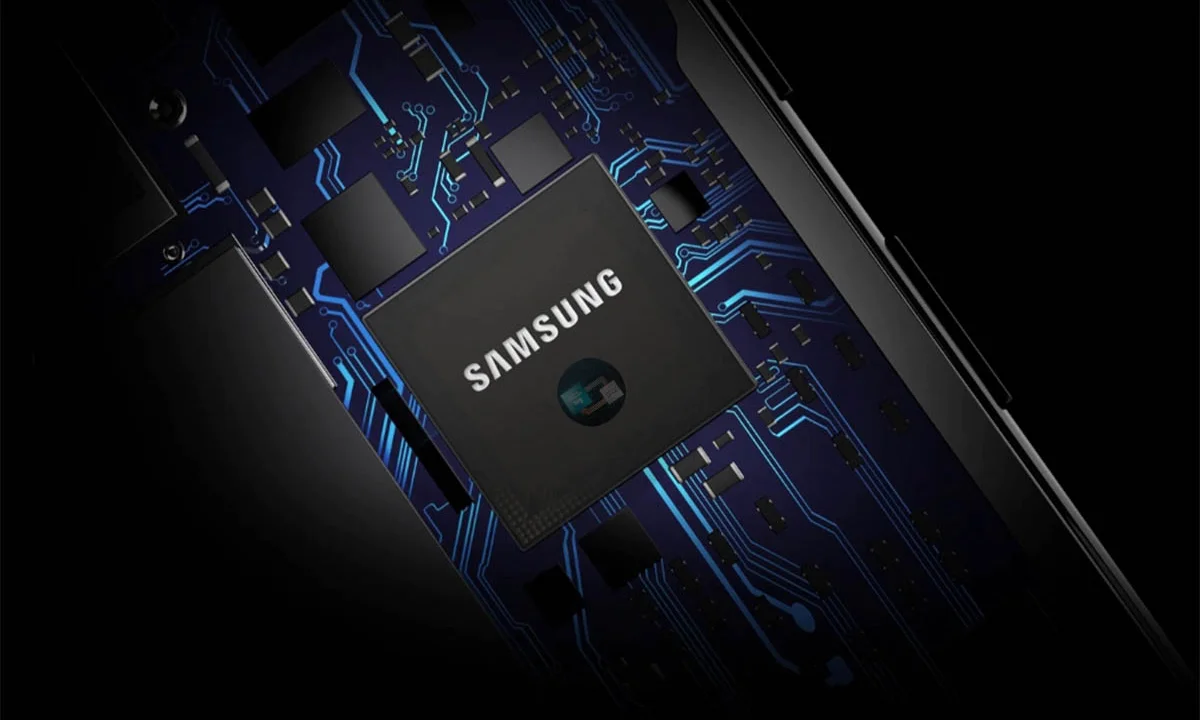News
Samsung’s 1.4nm, 2nm Tech to Power the Future of Electronics

Although Samsung supplied 3nm chips, they were not as high-end ASIC processors as one might expect from a bitcoin company. However, the statements came from the Samsung Foundry executive’s side that things will change in the future. Also, a client’s final purchase typically takes three years, as per the CTO of Samsung Foundry, who made this statement during a speech at the Semiconductor Expo 2023 event hosted at COEX in South Korea. Samsung Foundry is now in negotiations with significant companies, so such conversations may come to fruition in the short term.
It is also important to note that the Exynos 2500 and most likely the Snapdragon 8 Gen 4 might be produced around late 2024 by employing the second-generation 3nm chip fabrication method that Samsung Foundry is currently working on. Being the first company in the world to introduce Gate All Around (GAA) technology, Samsung faced several criticisms as they failed to get themselves great clients. For its 1.4nm and 2nm processes, there has been gossip surfacing; the firm has grabbed some major chip clients.
Snapdragon 8 Gen 3: Qualcomm’s New Flagship SoC Is a Powerhouse for AI
Looking back, despite being the first firm in the world to commercially introduce and market a 3nm chip manufacturing technique, Samsung Foundry failed to secure major semiconductor clients such as AMD, Nvidia, and Qualcomm. So the firm should not repeat this any further. Samsung is planning to begin the fabrication process of the 2nm chip by 2025, and for the 1.4nm chip, it may start in 2027.
What’s troubling the South Korean giant?
Samsung Foundry CTO Jeong Ki-tae stated that stability is critical for semiconductor companies since any problems at the foundry might affect end users. Also, he made it clear that semiconductor manufacturers find it difficult to first embrace new technologies. The Chief Technology Officer of Samsung Foundry asserted that Chinese businesses find it comparatively simpler to penetrate the back-end process domain in the chip fabrication industry.
Jeong believes that it is difficult for younger Chinese companies to get into this very competitive and intricate market sector nonetheless, and that in order for their innovations to succeed at scale, they must have a wide client base or a company that can handle both front-end and back-end work. He also clarified that semiconductor manufacturers find it difficult to first embrace new technologies. For a foundry and a chip customer to be successful, Jeong clarified that closely knit business relationships and procedures are essential.
Jeong Ki-tae added,While the GAA process is a technology that will last in the future, it is difficult to find any further improvements in FinFET technology. We are in discussions with large customers for future processes such as 2-nano and 1.4-nano.”
Thanks to “SamMobile“
News
Samsung Prioritizes Faster Charging in 2024 Smartphones

The first quarter of 2024 is already over; during this interval, Samsung has introduced several Galaxy smartphones of particular belonging, such as the flagship Galaxy S24 series, the Galaxy A55 and Galaxy A35, the mid-range ones, the Galaxy A15 and Galaxy F15, the budgetable ones, and many more. But the fact is, after being the latest smartphones, they have a lack of ‘charging speed.’
Undoubtedly, Samsung is leading the tech industry with its top-notch features, design, and larger batteries, as compared to other Android manufacturers, but despite all this, it has a massive lack of charging speed. Samsung usually attaches larger batteries to its Galaxy smartphones to enhance the users’ non-stop-using experience. But a larger battery isn’t worth it unless it has a good charging speed.
On the other hand, Chinese manufacturers are equipping their smartphones with charging speeds north of 100W, whereas 45W is the maximum speed you can get on Galaxy smartphones. However, even 45W charging is quite rare among Galaxy phones. Samsung has launched most of the Galaxy devices in the last couple of years, including the flagship with support for 25W.
Here we are making things easy for you if you are looking to buy a Galaxy smartphone that debuted in 2024 with the support of 45W charging speed by mentioning a list of devices:
- Galaxy S24 Ultra
- Galaxy S24+
- Galaxy F55
- Galaxy M55
- Galaxy C55
The list is quite short, even considering that the Galaxy F55, M55, and C55 are just rebranded variants of the same smartphone for different regions. Now Samsung is setting up to launch its next-generation foldable devices, the Galaxy Z Fold 6 and Galaxy Z Flip 6, in July, but it is yet to be confirmed whether these devices will get a boost in charging speeds from 25W or not.
News
New Galaxy Phone In Existence: Samsung Galaxy M35 5G Spots On Geekbench

The Korean brand – Samsung has recently announced its two mid-range Galaxy smartphones – Galaxy A55 5G and Galaxy A35 5G. A new benchmark listing has a spot for Samsung’s affordable smartphone, Galaxy35 5G.
Samsung is now gearing up for its next affordable Galaxy smartphone, the M35 5G, as the reports are unvunveilhey have found a new benchmark listing for Samsung the Galaxy M35 5G.
The smartphone has been spotted with the model number as an identification code – SM-M356B on the Geekbench 6.2.2 database. Not only this, but it also confirmed the presence of 6GB of RAM and Android 14 OS. The chipset also came to know which is the latest Exynos 1380.
The codename for the motherboard is also mentioned, which is ‘s5e8835.’ The reports say that it has scored 656 and 1967 points in performance scores on the benchmarking platform. Exynos 1380 is the latest chipset of the Korean brand, which is a 5 nm processor. It consists of 4 Cortex A78 cores, which clock at 2.4GHz, and 4 Cortex A55 cores, which clock at 2.0GHz. It is coupled with a Mali g68 MP5 GPU. It also has an AI Engine.
This also offers connectivity options, which include the latest Bluetooth version 5.3 and Wi-Fi 802.11 ax with three bands. It supports a camera resolution of at least 200MP for capturing images, and for video recording, there is support for up to 30fps 4K recording. The storage supported is UFS v3.1, and RAM will be of the LPDDR4x/5 type.
Samsung has recently debuted its two smartphones, Galaxy A55, and Galaxy A35; the Galaxy A35 5G smartphone is powered by Exynos 1380 chipset. From this perspective, Galaxy M35 5G could be a variant of Galaxy A35.
At the moment, no specs and features of the device have been revealed or leaked. Still, since Galaxy M series smartphones usually have a bit higher battery power of at least 6000mAh, the forthcoming Galaxy M35 5G smartphone also arrives with the same battery power.
Firmware
Verizon rolls out the March 2024 security patch update for the Galaxy Z Fold 3 and Galaxy Z Flip 3 devices

Verizon has rolled out the March 2024 security patch update for the Galaxy Z Fold 3 and Galaxy Z Flip 3 devices. Earlier, these devices had received the same update outside the US, but now they are gradually expanding to the US.
The Galaxy Z Fold 3 and Galaxy Z Flip 3 are spotted getting new updates with the firmware version numbers F926USQS5HXBD and F711USQS6HXBD, respectively. It is worth noticing the update is currently available for the devices locked to Verizon, but it will soon be available on more carriers.
For your information, the latest update for Galaxy Z Fold 3 and Galaxy Z Flip 3 doesn’t bring any significant changes, but as it is the latest security patch, it will provide some internal fixes to maintain the security of the devices.
If you are getting some other issues from the last update, you should also update the device to the latest update, as it may also address some issues. Along with the update, other improvements may also be made to enhance the overall performance of the devices.
Suppose you use the Galaxy Z Fold 3 or Flip 3 device in the US. In that case, you can update the device to the latest version by simply going to the system settings and then to the software update. If you haven’t received the update, you should wait for some time, as it may arrive in the next few days.












